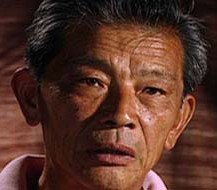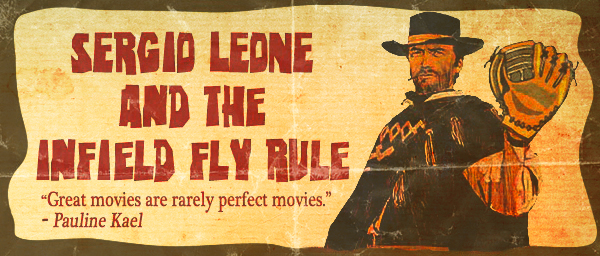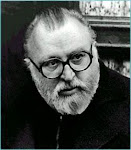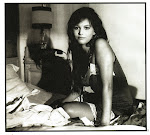MAKO 1933-2006

By the time I first saw Mako on the big screen, in the 1974 Walt Disney production Island at the Top of the World, I’d probably already seen him 30 or 40 times in one of the various guest-starring roles he had in some of my favorite television shows, such as The Green Hornet, 77 Sunset Strip, McHale’s Navy, Gidget, F Troop, The Time Tunnel, The Streets of San Francisco, Mannix and, of course, Kung Fu. I had not seen The Sand Pebbles, for which Mako received an Oscar nomination, by this time. So his role in Island as the Eskimo guide Oomiak, who helps sincere American David Hartman, snooty Brit Donald Sinden and French comic relief Jacques Marin pilot their dirigible through various troubles in search of a Shangri-la-esque society of Vikings nestled, well, at the top of the world, was my first real impression of the actor. Even though the role was a pretty standard variation on the ethnic sidekick seen in many movies before and since,
 Mako’s distinct dignity and resistance to the temptation to overact the part branded his visage and his sensibility into my memory. I took notice of him each and every time after that, in films and in television. His was a presence that I always found welcoming, due mostly to his tendency to be cast as wise characters of a certain even temperament in films like Conan the Barbarian, The Bushido Blade, Conan the Destroyer, and Tucker: The Man and his Dreams. But this welcoming presence carried over even to his villainous appearances in films that were controversial within the Asian-American community for their depiction of the dark side of the Asian, and particularly Japanese, character, in films like Philip Kaufman’s adaptation of Michael Chricton’s Rising Sun and Michael Bay’s Pearl Harbor, where he depicted no less than Admiral Yamamoto.
Mako’s distinct dignity and resistance to the temptation to overact the part branded his visage and his sensibility into my memory. I took notice of him each and every time after that, in films and in television. His was a presence that I always found welcoming, due mostly to his tendency to be cast as wise characters of a certain even temperament in films like Conan the Barbarian, The Bushido Blade, Conan the Destroyer, and Tucker: The Man and his Dreams. But this welcoming presence carried over even to his villainous appearances in films that were controversial within the Asian-American community for their depiction of the dark side of the Asian, and particularly Japanese, character, in films like Philip Kaufman’s adaptation of Michael Chricton’s Rising Sun and Michael Bay’s Pearl Harbor, where he depicted no less than Admiral Yamamoto.  Saturday night I received an e-mail from a friend who passed along another friend’s thoughts about Mako, who lost a long battle with esophageal cancer this past week. He reminded us that Mako, who was known professionally only by the one name, used his mother’s surname, Iwamatsu, with those who knew him personally. Mako was the son of activist anti-militarist painters Taro Yashima and Mitsu Iwamatsu, who fled Japan before World War II. Mako was a sickly child and left with his grandparents in Japan. The story of Taro reuniting with Mako after the war is told in Taro's book Horizon is Calling. The e-mail then continues on in an even more personal nature. I don’t know if the author of the e-mail was personally acquainted with Mako, but the tone of the message certainly suggests he was. And if he wasn’t, that may be an even more profound tribute to the actor’s influence and standing within the acting community as a whole, but also within the Asian-American community of performers. He seemed like someone we all knew, and someone whose absence we will all certainly feel. Like my friend’s friend, you may even want to raise a glass in tribute to this fine actor. If you do, let me join you in spirit.
Saturday night I received an e-mail from a friend who passed along another friend’s thoughts about Mako, who lost a long battle with esophageal cancer this past week. He reminded us that Mako, who was known professionally only by the one name, used his mother’s surname, Iwamatsu, with those who knew him personally. Mako was the son of activist anti-militarist painters Taro Yashima and Mitsu Iwamatsu, who fled Japan before World War II. Mako was a sickly child and left with his grandparents in Japan. The story of Taro reuniting with Mako after the war is told in Taro's book Horizon is Calling. The e-mail then continues on in an even more personal nature. I don’t know if the author of the e-mail was personally acquainted with Mako, but the tone of the message certainly suggests he was. And if he wasn’t, that may be an even more profound tribute to the actor’s influence and standing within the acting community as a whole, but also within the Asian-American community of performers. He seemed like someone we all knew, and someone whose absence we will all certainly feel. Like my friend’s friend, you may even want to raise a glass in tribute to this fine actor. If you do, let me join you in spirit.Here’s to you, Mako-chan.



















No comments:
Post a Comment